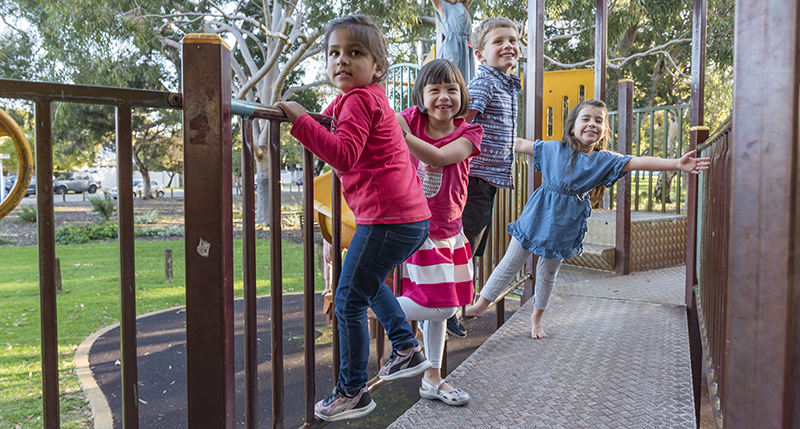We've all heard of the phrase ‘it takes a village to raise a child’ but unfortunately in contemporary western society that ‘village’ can be hard to find.
This can leave parents feeling isolated and their kids spending less time playing with other children.
But The Kids Research Institute Australia researcher Dr Tess Gregory says that is where playgroups can come in.
“Playgroups provide a great opportunity for children to play with one another on a regular basis, and for parents to meet new friends in their local area and support one another through the joys and challenges of parenting young children.”
But what exactly is a playgroup and how does it differ from other forms of early education?

“A playgroup is when a group of parents, caregivers or even extended family meet up with their babies and young children to learn together through play,” Dr Gregory says.
“Unlike day care where parents drop their children off, parents or carers stay at the playgroup with their child.”
In 2016, Dr Gregory and her team completed a study into playgroups which found that children who attended playgroups had better:
- physical development such as fine and gross motor skills
- social and emotional skills such as co-operation, sharing and taking turns
- language skills
- oral communication skills
“Play is essential for children’s development and playgroups provide opportunities for children to develop a range of different skills,” Dr Gregory says.
And there are proven benefits for parents too…
“One of the best things about playgroup is the benefits for parents and caregivers who stay to interact with one other and with their children,” Dr Gregory says.
“Playgroups provide parents with an opportunity to learn from one another, to improve their parenting skills and knowledge about their children’s needs, and to develop a strong social support network that they can draw on for emotional and practical support when needed. It really is the modern day ‘village’.”
While one in three children already attend a play group before they start school, up to 200 thousand children a year are missing out.
“In our study, some parents and caregivers reported finding it difficult to fit playgroup into their schedule, to find a playgroup that is a good “fit” for them, or to access transport to get to the playgroup,” Dr Gregory says. “But I encourage people to try and find a group that works for them.”
“There are hundreds of playgroups in WA that cater to different types of caregivers including mums, dads, grandparents, aunts, uncles, nannies and carers.
“Sessions are also available at different times and days of the week including weekends, and they are spread out across the metro area as well as in regional areas of the state.
Children can go to playgroups between the ages of about 6 weeks and 5 years.
If you would like to join a playgroup, the best place to start is with your local playgroup association.
Playgroup WA have a wealth of information on their website as well as a search function where parents can search for available playgroups in their local area.
Learn more about our research into the impact of playgroups here.
